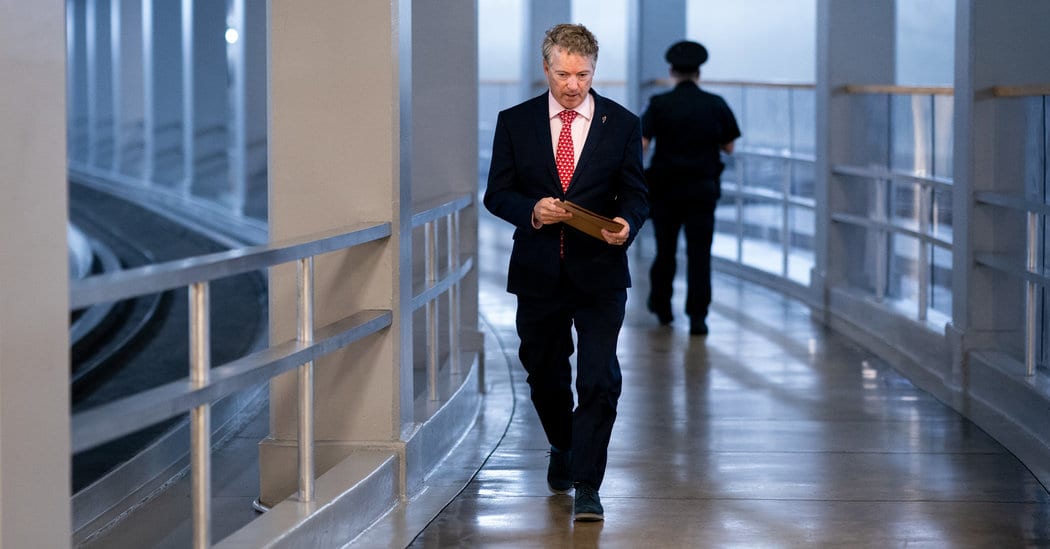Others who had recently been near Mr. Paul sought guidance on Sunday from Brian P. Monahan, the attending physician of Congress, though they continued to move through the Capitol.
His deputy chief of staff, Sergio Gor, initially said that Mr. Paul was “asymptomatic and was tested out of an abundance of caution due to his extensive travel and events.” His Washington office began operating remotely 10 days ago, Mr. Gor said, and “hence virtually no staff has had contact” with him.
Hours later, Mr. Gor was more specific. He said the senator had decided to undergo testing “after attending an event where two individuals subsequently tested positive for Covid-19, even though he wasn’t aware of any direct contact with either one of them.”
That appeared to be a reference to a fund-raiser Mr. Paul went to this month in Louisville, Ky., where two attendees later tested positive for the virus. After the museum that hosted the event alerted attendees in an email last Sunday, several officials who had also been present — including the state’s governor and Louisville’s mayor — scrambled to get tested.
Representative John Yarmuth, Democrat of Kentucky and the chairman of the House Budget Committee, announced that he would self-quarantine for two weeks while awaiting the results of his test, which later came back negative.
After Mr. Moran reported his Sunday morning encounter with the senator, Mr. Paul’s staff posted on Twitter that he had “left the Senate IMMEDIATELY upon learning of his diagnosis.”
“He had zero contact with anyone & went into quarantine,” they added, sidestepping why the senator had been in the gym in the first place.
Mr. Paul, an ophthalmologist by training, was a practicing doctor before joining the Senate. Like his father, Ron Paul, a former member of Congress, he considers himself a libertarian. Last week, he was one of only three senators to vote against a multibillion-dollar rescue bill to help fight the coronavirus because its costs had not been paid for and would contribute to the national debt.
Mr. Paul could be at elevated risk for adverse effects from the novel coronavirus, which can cause pneumonia, sometimes severe. In November 2017, Mr. Paul was violently attacked by his neighbor in Kentucky during a dispute and had to be hospitalized. As a result of the ensuing injuries, Mr. Paul had to undergo surgery in August to have part of his lung removed.
Two other members of Congress — Representative Mario Diaz-Balart, Republican of Florida, and Representative Ben McAdams, Democrat of Utah — have also tested positive for Covid-19. Mr. McAdams said in a statement on Sunday that he had been hospitalized and given oxygen over the weekend, but that his condition had stabilized.
When a half dozen other senators were exposed to individuals who had tested positive for the virus, they voluntarily self-isolated, as top health officials have advised. They also made sure to communicate with constituents that following the guidelines was an important matter of life and death, even for their elected leaders. Senator Cory Gardner, Republican of Colorado, has been absent from the Senate for much of the week for that reason.
Privately, some lawmakers were incensed that Mr. Paul had continued to circulate among colleagues when he knew he might have the virus.
This content was originally published here.

